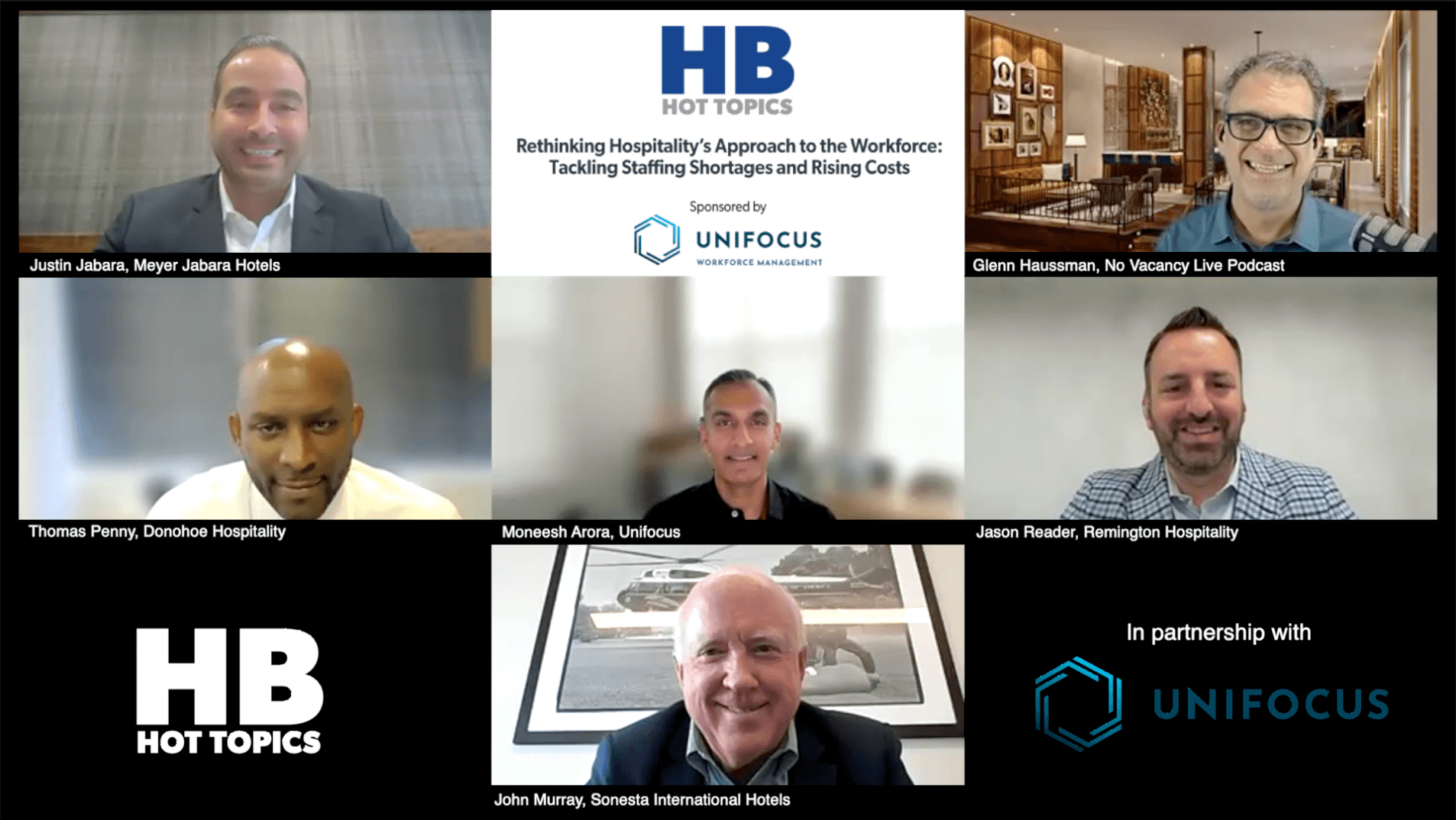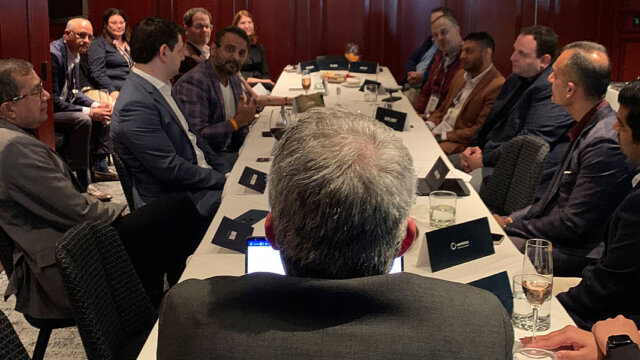Labor has been an industry burden for years and was exasperated by COVID, but today’s climate is much different than it was a few years back as hoteliers remain optimistic and use new tools to navigate the challenge.
To talk about staffing and mitigating costs, Glenn Haussman, founder/host, No Vacancy Live podcast, moderated the latest Hotel Business Hot Topics session, “Rethinking Hospitality’s Approach to the Workforce: Tackling Staffing Shortages and Rising Costs,” in partnership with Unifocus.
The panel featured Jason Reader, EVP, operations, Remington Hospitality; Justin Jabara, president, Meyer Jabara Hotels; Thomas Penny, president, Donohoe Hospitality; John Murray, president/CEO, Sonesta International Hotels; and Moneesh Arora, CEO, Unifocus.
“It’s a better [staffing] situation now than it was in the past year,” Reader said. “It seems when you go to markets that have dynamic general managers, do you ever notice how they don’t suffer from the same staffing shortages that the other hotels do? Of course, we can’t have that in every hotel, but it just goes to show that the culture piece and leadership really do matter.”
Although the industry is surely in a better place in 2023 than it was a few years back, more than 100,000 hotel-specific jobs are currently open in the U.S., according to AHLA.
“We’re competing against many other industries,” Jabara noted. “It’s no longer about competing against other hotels. COVID leveled the playing field. As an organization, have a strong culture, which is appealing, but what we’ve found is that you can’t hire someone just to be a room attendant… it’s wanting that experience and culture working at that hotel.”
Adding to the culture component, it’s also about managing today’s workforce. This means streamlining schedules and boosting probability and long-term property value in creative, efficient ways.
“A common theme we’re seeing is giving frontline managers and GMs the appropriate amount of time to spend with people on the recruiting and retention fronts and daily interactions,” Arora said. “It’s about freeing them up by taking the mundane but necessary tasks around scheduling and automating those and empowering employees to manage their own time.”
Something COVID taught, he said, is that people want control of their time. By having a hotel operator or GM give employees the time back is where he’s seeing hotels differentiate themselves in the market.
Employees, especially younger generations coming up through the workforce, also want to feel connected to their team members. To work alongside people who not only care about the guest but each other is especially important.
“Employees want to come work with people who are engaged and care about helping people—that’s the good thing about hospitality,” Murray said. “People get into the hospitality business because they care. We need to get them in the door…hospitality is contagious.”
But that happens to be the greatest hurdle—getting passionate, motivated people in the door. So, how does hospitality attract these workers? Creating realistic pathways is key, especially for diverse groups, but also sharing success stories.
“People want the opportunity for growth, especially this generation; they don’t want to wait 20 years to become a GM—we have to give them an accelerated track,” Penny said. “Success stories spread throughout an organization. There are tremendous stories about how our industry is a low-floor high-ceiling business. At a time when college tuition is unaffordable, our industry is the industry where they can come in and make a great living and grow within our business. We have to continue to make certain folks are connected to these stories.”
For more insights on this Hot Topics session, make sure to check out the October issue of Hotel Business.



